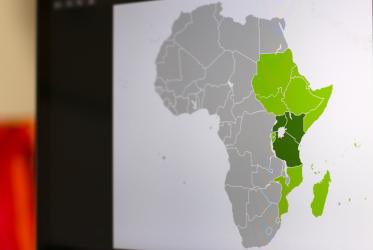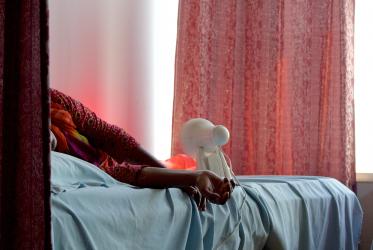Displaying 141 - 160 of 411
Churches offer some relief in Kenya’s drought disaster
16 September 2021
“Gathering in Grief” mourns Rev. Phumzile Mabizela
07 July 2021
WCC podcast deals with death and dying
15 December 2020














